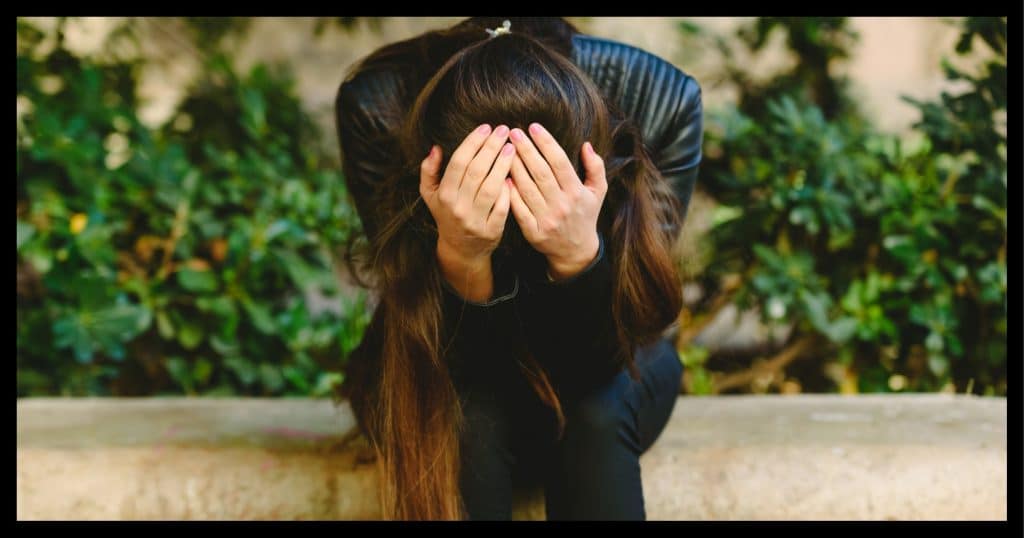
I’m starting to notice that many more people have suffered trauma in their lives than I ever would have imagined.
I mean actual, life altering events that in retrospect we would refer to as trauma.
We are a damaged species. Each and every one of us, it would appear.
My trauma, which I can sometimes barely even think of as trauma, is being bullied in grade school.
I was the largest, but I refused to fight, making me a natural target. It was life altering, but in ways I can’t really identify as a causal link. Perhaps it contributes to my introspective, introvertive nature, but then I can’t say I don’t come by that naturally as well.
It’s hard to quantify. I think that’s also part of the nature of trauma; it’s not always easy to see its effects.
But the genuine revelation to me is how so many people have been through so much worse, at so many times in their lives. Be it bullying, abusive relationships, abusive work or living arrangements, physical trauma, emotional trauma, or something else.
If we had the freedom and safety, I’m sure anyone you ask could identify some form of trauma in their past that informs who they have become today.
But we don’t have that safety; we don’t have that freedom.
Trauma is something we don’t talk about. When we do, it often comes with buckets of unjustified judgement, usually based on not understanding how deeply it’s affected us. It’s something we only talk about to our therapists, and maybe a very trusted friend. It’s rarely something we make public.
What’s interesting is that social media, of all things, is providing some people an outlet.
Whether it’s for good or for bad for the individual involved is unknown, but TikTok, as one example, seems to provide a “safe” environment for many to talk about their trauma and share experiences with others. I put “safe” in quotes, because as we all know, posting anything publicly is an invitation for trolls and worse. I’ve certainly seen some TikTokers wilt under the onslaught.
I’ve also seen several who are making an amazing difference not only for themselves, as part of their journey, but for others who might otherwise feel alone.
How you deal with trauma is a very personal choice. Often it should be guided by trained professionals or experts.
But the big takeaway here is that regardless of your trauma, you are most definitely not alone.
There’s a very good chance that most of the people you know are with you in one form or another.

Since my beloved partner died, I’ve been finding that posting on Facebook about my journey through grief has been so helpful to me. By sharing my thoughts and feelings of grief in this manner, I reach a much wider “audience” of my friends & family. One of the hardest questions to answer while grieving is, “how are you doing?” This allows all of them to know how I’m doing. Grief is exhausting & talking about it by telephone is even more exhausting. Being able to write what I’m feeling rather than talk about it, provides a pain buffer and I am unbound by phone call time and energy constraints. It also allows me to speak without interruption. Reading what I’ve written helps to affirm and validate the experience to myself. The added benefit is that my friends and family can “write” back to me very soon after I’ve expressed my feelings, offering words of encouragement and empathy, or an emoji that tells me they care. Knowing there are those who care about me and that they read whatever I post, feels, in a sense, like a support group. A friend I recently saw in person said to me as she hugged me, “I don’t need to ask how you’re doing since I read your posts”. It was a relief to just sit and enjoy her company rather than have to attempt to describe how I’m doing. This unexpected benefit was so very freeing. Since there is no way to keep in touch with everyone in my circle on a regular basis, this has become an essential aid in mourning (which I just read is the outward expression of grief).
In closing, I must mention that I am VERY careful of what I say & I don’t provide lots of details. Describing my EXPERIENCE, my feelings, is the benefit for me. It also provides me a written “journal” of sorts that I can peruse at a later date to recall how I was coping at an earlier time.
I’m very sorry for your loss. What you’ve shared here is very touching, and I’m gratified to see you’ve found an outlet that works for you and seems to be working well.
My only thought is that I’d recommend saving a copy of your “journal” in some form that’s not necessarily on Facebook. I say that from my day job, where I hear of people losing access to their accounts for a variety of reasons all the time.